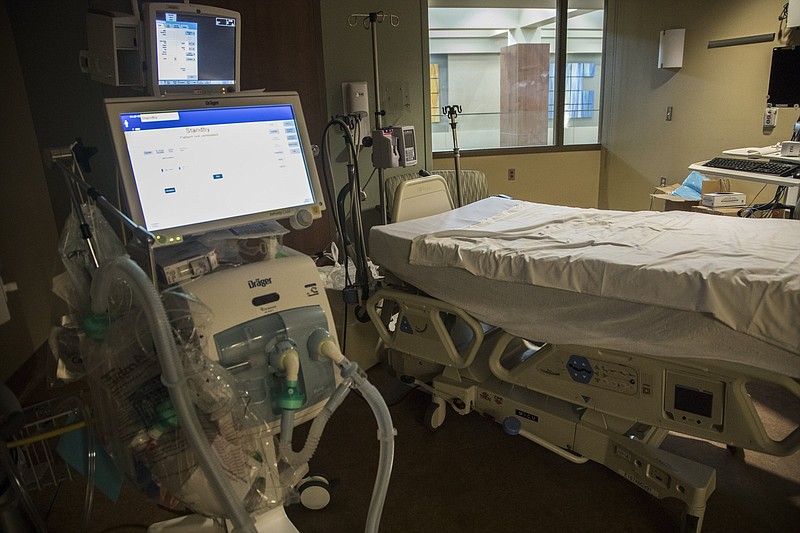The stress and anxiety caused by the ongoing global pandemic is being met this week by the start of the holiday season, a period many use to reflect and be grateful.
Yet, facing a deadly virus that has claimed at least 1.3 million lives worldwide, political unrest in the United States and a recovering economy that has left millions still without a stable income, it can be difficult to lean into thoughts of thanksgiving.
Troy Brand, senior pastor of Orchard Park Seventh-day Adventist Church, said people should take an honest assessment of what is happening in the world. The crises are real, he said.
"So many people have suffered during the coronavirus," Brand said. "Then we have people down in the Gulf Coast who have suffered during the hurricanes. Then there are folks who are on the West Coast who have been devastated from the fires there. We have a lot to be thankful for. Not to compare our troubles with someone else's, but we were spared."
People should reflect on what they can be thankful for in this season, Brand said, suggesting people make a list of 10 things, including things like having good health or a loving family. He also mentioned a word of caution for those who have not been directly impacted by the pandemic or other disasters in the past year.
"One day we will be that person who is sad during the holiday season. The one who has that loss whether it's a job, property or whatever," he said. "So we have to enjoy and just be grateful for the moments that we have. You can be grateful without gloating. You can be grateful without propping it up on someone else's tragedy."
Loren Clifford, director of operations at the Center for Mindful Living, said mindfulness practices, such as breathing techniques, meditation or yoga can deepen a person's self-awareness. These strategies can be helpful in times of uncertainty or internal conflict, she said.
"When we begin to dive into how we're feeling each day and where our mental state is, our mental wellness is, our physical state or our emotional state, we get to tap into how we are feeling," Clifford said. "If you feel grief or if you feel upset, if you feel sad or if you feel joy, just notice where you are because when you notice where you are, you're more aware of it, and that gives you more agency over how you respond versus react to the world around you."
People should not look at these practices as ways to ignore uncomfortable issues in their lives, Clifford said. Instead, being mindful is about recognizing negative feelings as well as positive ones.
"In reality, it's not pushing away any of the perceived 'bad' in our lives, in our thoughts or in our experiences; or the challenges, is another way to say that. It's just a way for you to come back to your center base and begin to engage with yourself a little bit deeper in terms of feeling a deeper awareness and understanding of all things," she said. "So not just the feel-good things, but all things, and approaching it with a sense of acceptance and compassion and curiosity and non-judgment."
The U.S. Centers for Disease Control and Prevention, as well as local health experts, are urging Americans not to celebrate Thanksgiving with people outside of their households as cases surge throughout wide swaths of the nation. Travel increases the chance of contracting or spreading COVID-19. Celebrating virtually, or only with other members of the same household, poses the lowest risk, the CDC advised.
Contact Wyatt Massey at wmassey@timesfreepress.com or 423-757-6249. Follow him on Twitter @news4mass.
